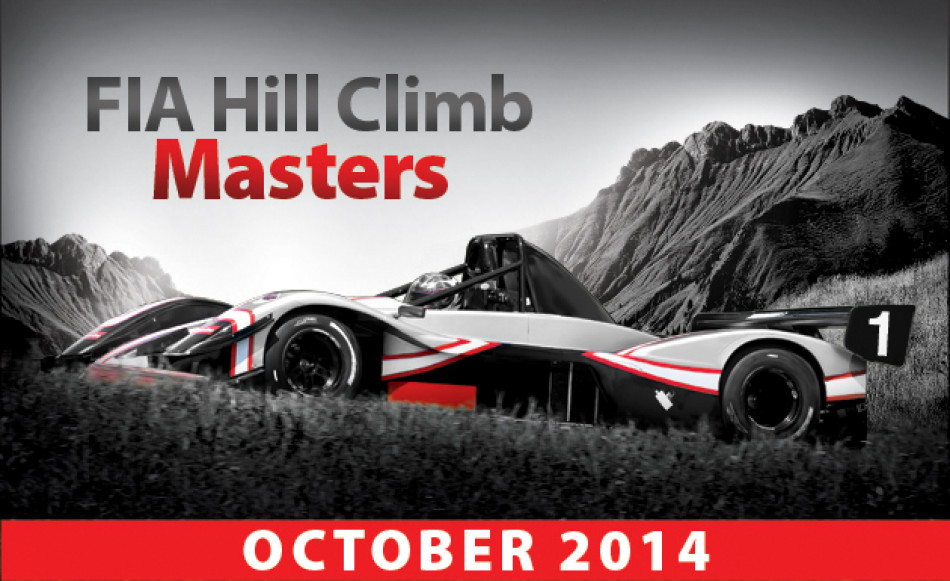New in 2014: the FIA Hill Climb Masters

In the landscape of the various forms of motor sport, hill climb is a discipline which stands alone, yet it is also one of the longest-standing disciplines, with events dating back to the beginning of the twentieth century and the first European Championship of the AIACR (which would later become the FIA) in 1930.
Practised in over 20 European countries, but also on other continents (the most famous being Pikes Peak, a climb that has been held in Colorado, in the United States, since 1916), the acme of hill climb is the FIA European Hill Climb Championship, with 13 events held in 11 countries. In addition to the European Championship, there is a Championship reserved for historic cars (12 events) and two other series called the FIA International Hill Climb Challenge and the FIA European Hill Climb Cup (11 events).
With national and international competitions, the calendar is full and the pool of drivers is fundamentally amateur. It is therefore difficult to convince competitors to take part in one championship for the entire season, particularly given the current economic climate.
The idea therefore emerged to create a single event, at the end of the season (mid-October), to showcase the discipline and to celebrate national and FIA champions of the year gone by. Thus the “FIA Hill Climb Masters” concept was born, following a similar format to that of Masters practised in a number of other sporting disciplines. In the same way as these other sports, the organisation of the Masters will be on a rotational basis, of a minimum 3-year period, and awarded to countries and events in a position to attract a maximum number of champions, bearing in mind that they will come, for the most part, from all over Europe, and to guarantee a quality of organisation and promotion which enhances the prestige of the discipline.
Clash of champions, clash of nations
The Masters will bring together the winners of national championships recognised by the ASNs, as well as the winners of the FIA Championship, Challenge and Cup. For this event, each of the champions will have to race behind the wheel of the car which he has been using during the season.
The Masters will include two classifications: an individual classification, where the winners will be awarded gold, silver or bronze medals, and a Nations Cup. Since thee equipment entered and its level of performance may differ between the participants with varied backgrounds, the classification of the Nations Cup will be based on a regularity index, rather than sheer speed. Therefore, a nation which does not enter a prototype or single-seater could still aim to win, just as a nation which has drivers in its ranks capable of going for overall individual victory.
“All the events of the FIA European Hill Climb Championship are very popular,” explained, Paul Gutjahr, President of the FIA Hill Climb Commission. “The number of competitors in each event often exceeds 150 and sometimes approaches 250. Many national events also regularly reach 150 entries. But hill climb is a discipline of amateur drivers, who work Monday to Friday; most of these enthusiasts, even if they are champions in their own country, cannot travel up hill and down dale to take part in events abroad. The Masters being a single event, we can attract these drivers, particularly in light of the fact that, for those selected, it will be a kind of apotheosis, coupled with the pride of representing their nation. Moreover, the Masters will be an occasion to bring together drivers who never compete against each other. We want to make this the climax of the hill climb season, in an atmosphere which is both sporting and celebratory.”
Following this green light from the World Motor Sport Council on the concept of the competition, over the summer, the Hill Climb Commission will work on creating sporting regulations (including the exact criteria for the qualification of drivers) for this “Hill Climb Masters” and a list of requirements for the organisers, on the basis of which countries and organisers will be able to submit their candidature in view of the future editions of this new and promising competition.

 Facebook
Facebook Twitter
Twitter






